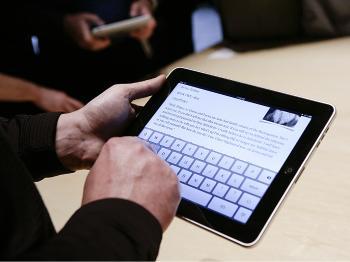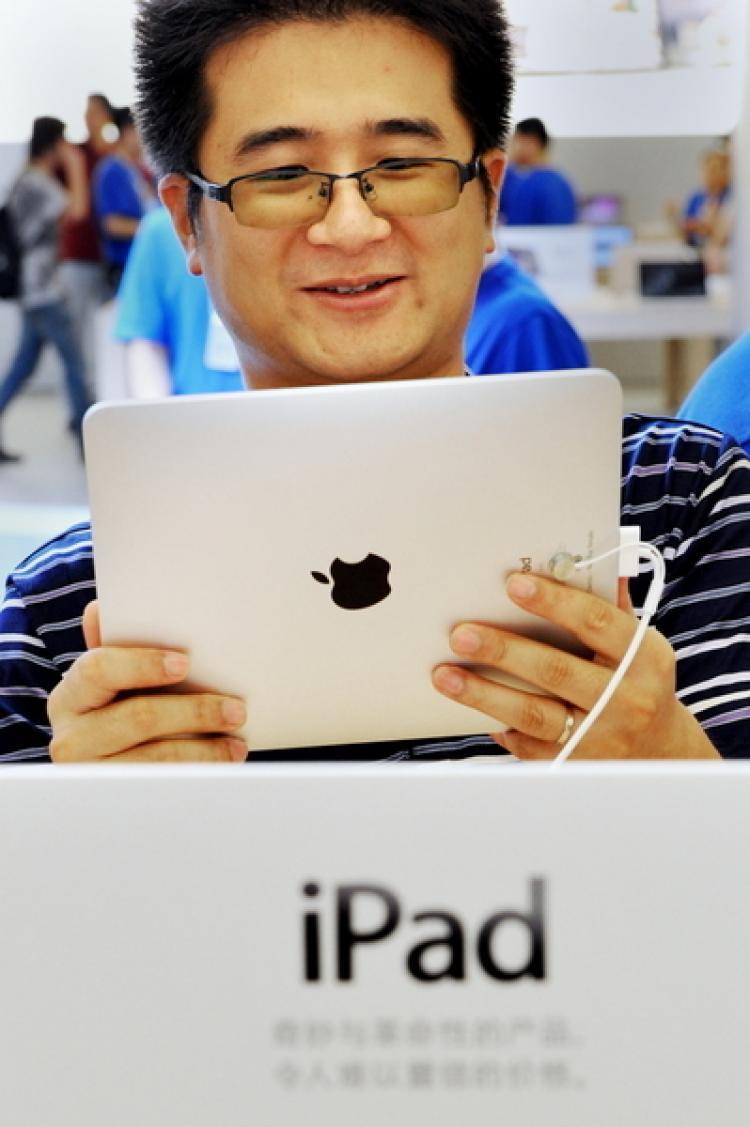New Tax Leads Chinese to Shop at Home
In the last few years high-end retailers around the world have learned that Chinese are ready to shop. Due to new duties levied by the Chinese state, the shopping spree may be coming to an end.

TABLET COMPUTER: Event guests play with the new Apple iPad during an Apple event on Jan. 27, 2010, in San Francisco. Ryan Anson/AFP/Getty Images
|Updated:






